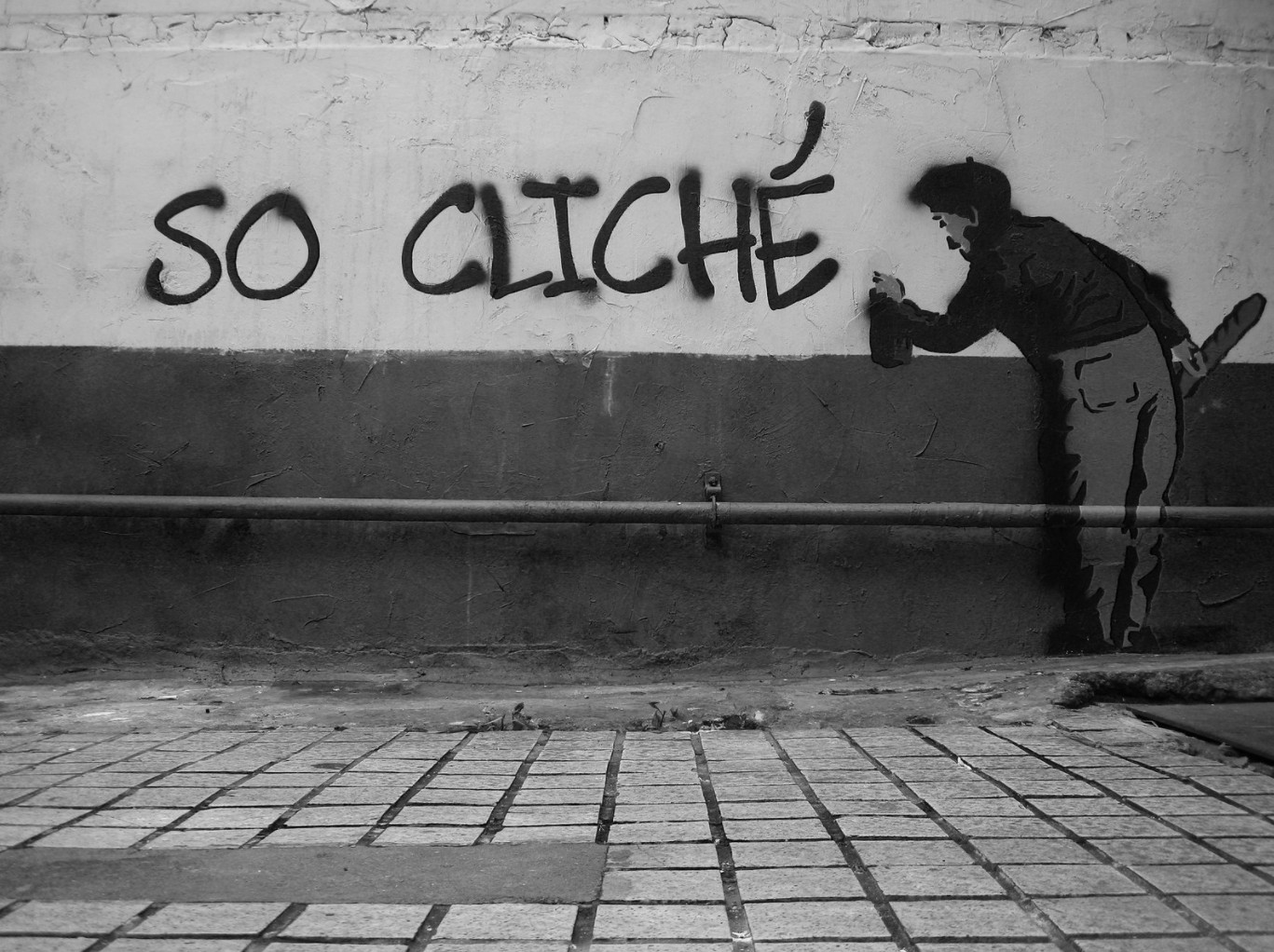
Cliché is an overused word, phrase or opinion.
“As luck would have it, at the drop of a hat I was at my wits’ end.”
What does this sentence say? Anything? Nothing? Nothing new—this sentence contains three clichés strung together. Just as you want to avoid archaic and discipline-specific language (jargon), you also want to avoid incorporating overused phrases (clichés) into your writing.
Granted, all language is reused. Unless you’re making up words, the words we use have been used before. But the wonderful thing about language is that by combining words in new ways and by giving them different contexts, you can construct a new and compelling message. Clichés take away from your insight; they make your reader yawn. You want to be original in your writing, so don’t recycle phrases—be daring! Put your agency as a writer into good use!
Here’s a list of Clichés that are often found in student writing (ones to avoid):
- Back to square one
- Beat a dead horse
- Bend over backwards
- Better safe than sorry
- To make a long story short
- Mouth off
- Plain and simple
- Preaching to the choir
- When push comes to shove
- Fan the flames
- After all is said and done
Exercises
1. Why don’t you take time now to jot down a list of all the clichés with which you’re familiar? Good. Place this list somewhere near your desk—somewhere visible—so that when you’re writing, you can double-check and make sure you’re not reverting to overused phrases.
2. Take that list of clichés and jumble up the words to make new phrases. You can take words from any clichés on the list. Don’t try and make sense; just write combinations of words and see what comes up. Who knows—maybe you’ll find a new way to illustrate an old idea, and maybe you will not. The point is to have fun and see how the combination of words can bring forth new meanings.





















